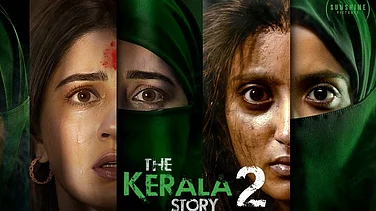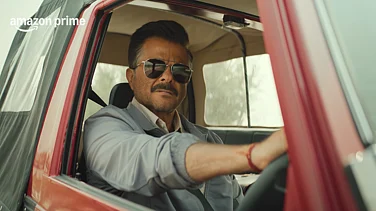
In the context of Outlook’s upcoming Independence Day issue on Freedom from Stigma of Mental Illness, this listicle features 15 films that portray mental health with dignity and compassion.
These fifteen films stretch across pan-Indian languages, each carving its own space.
They are a call to rethink how one sees mental illness and psychological workings of people’s minds on screen.
As psychologically-drawn films begin to carve space in thrillers, supernatural tales, and dramas alike, they give shape to what unravels when the balance between mind, body, and spirit splits. Films such as Chauthi Koot (2015), Barfi! (2012), Kaccha Limboo (2011), and Samantaral (2017) approach mental health and psychological distress through distinct emotional and cultural lenses, each capturing a different texture of the psyche across people of different age groups, time periods, geographies and cultures. Yet, amidst them, some films push the envelope further—sharper in gaze and more deliberate in how they draw us into the private worlds we rarely see, but often feel. This list is a challenge: to curate and watch, both. The following films call to rethink how one sees mental illness and the psychological workings of people’s minds with dignity on screen.
In no order of preference or rank, these fifteen films stretch across pan-Indian languages, each carving its own space:
1. Aata Vel Zaali (It’s Time To Go) (2024), Marathi, Dir. Ananth Mahadevan
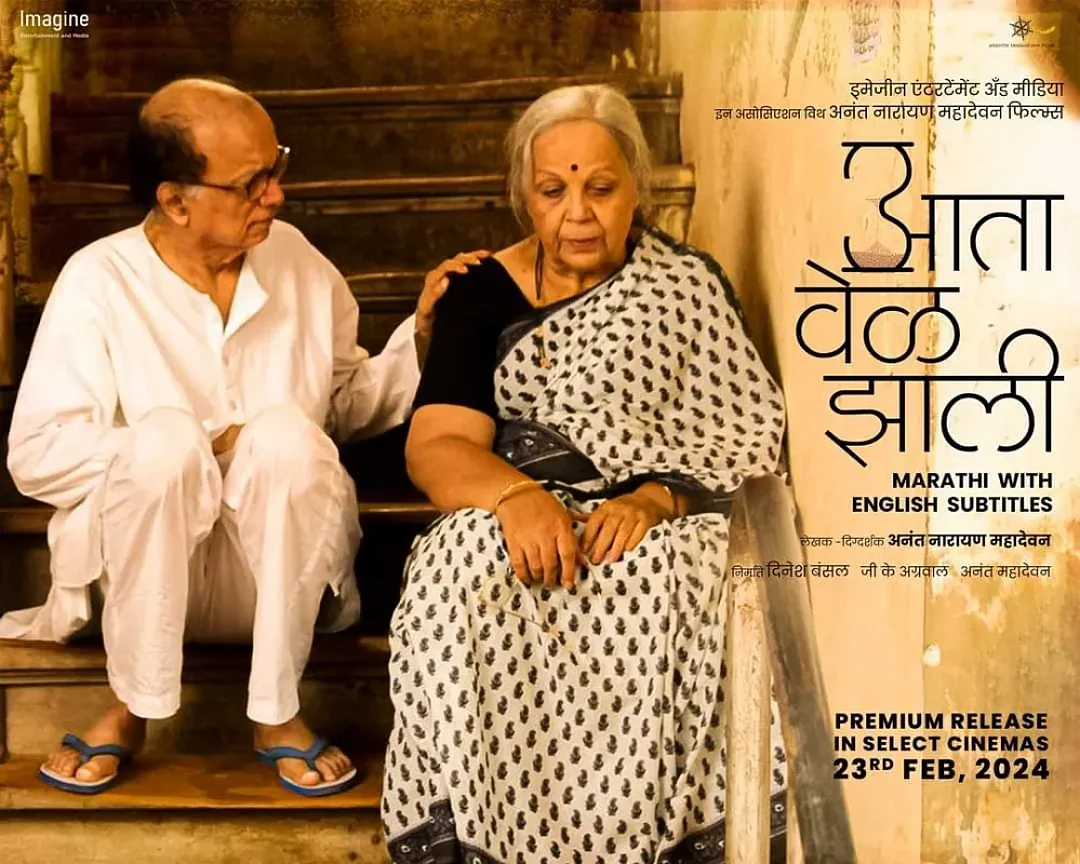
Based on a true story, the film follows an elderly couple (Dilip Prabhavalkar and Rohini Hattangadi) who, having fulfilled their duties and dreams, petition the President of India for euthanasia—seeking dignity in death before the onset of the decline that comes with age. With measured sensitivity, the film interrogates the moral, legal, and emotional weight of end-of-life autonomy, without reducing it to mere despair or rebellion. It offers a rare, deeply humane look at aging, agency, and what it means to choose peace over prolongation. This film is essential viewing for mental health awareness as it sensitively portrays psychological clarity within a difficult decision, confronts societal discomfort around death, and urges nuanced empathy rather than moral judgement.
2. Peranbu (2019), Tamil & Malayalam, Dir. Ram
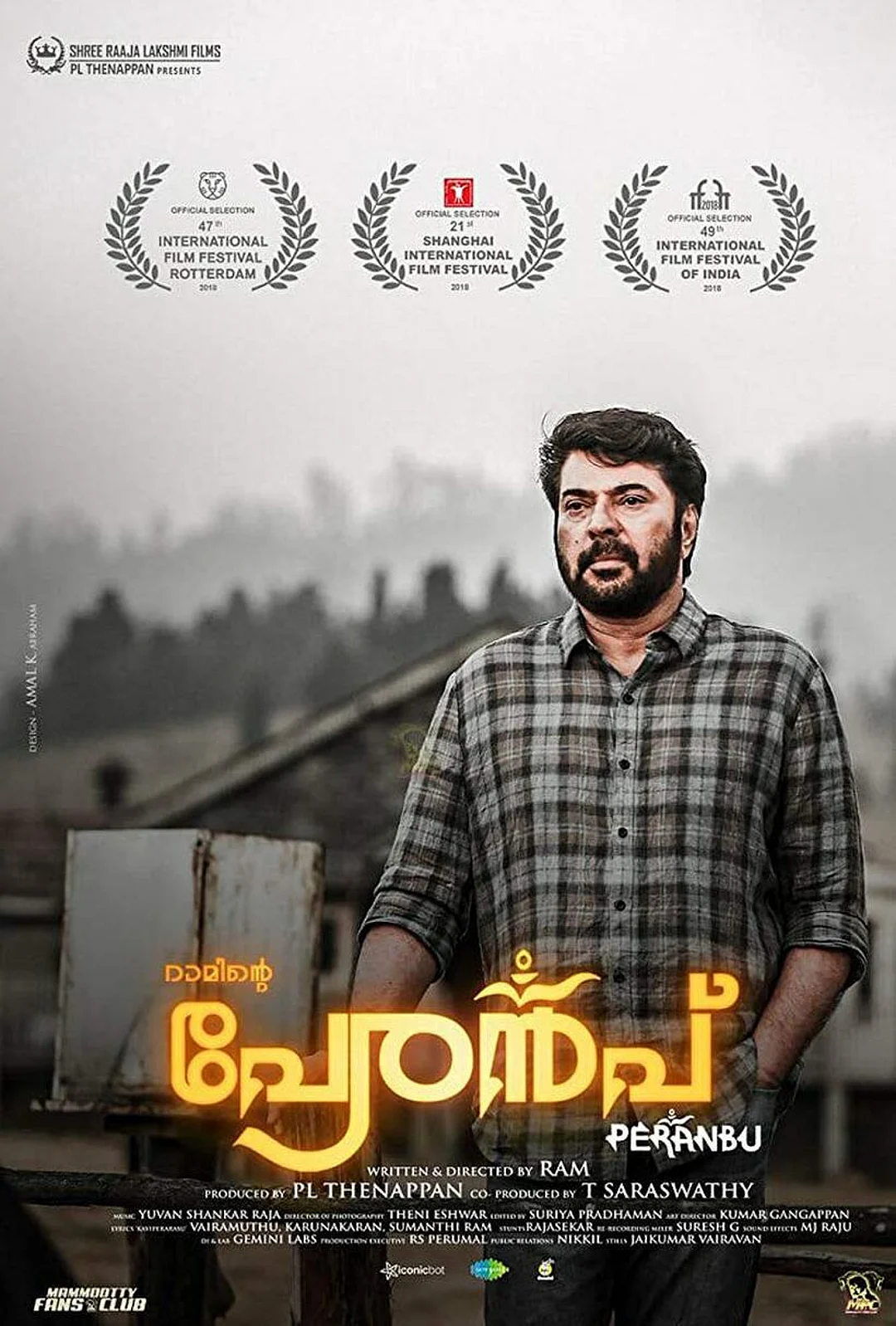
Peranbu explores the emotional journey of Amudhavan (Mammootty), a father learning to care for his daughter Pappa (Sadhana), who has cerebral palsy. As Pappa enters adolescence, the film navigates her emerging sexuality and his evolving understanding of her needs, desires, and dignity. What sets Peranbu apart is its ability to confront deeply stigmatized subjects—disability, caregiving, gender, and bodily autonomy with restraint and compassion. Peranbu is a must-watch to deepen one’s sensitivity toward invisible struggles faced by individuals with disabilities and their caregivers. It encourages a more inclusive emotional vocabulary and challenges conditioned biases, propagating awareness around mental health, neurodivergence, and social acceptance.
3. Titli (2014), Hindi, Dir. Kanu Behl
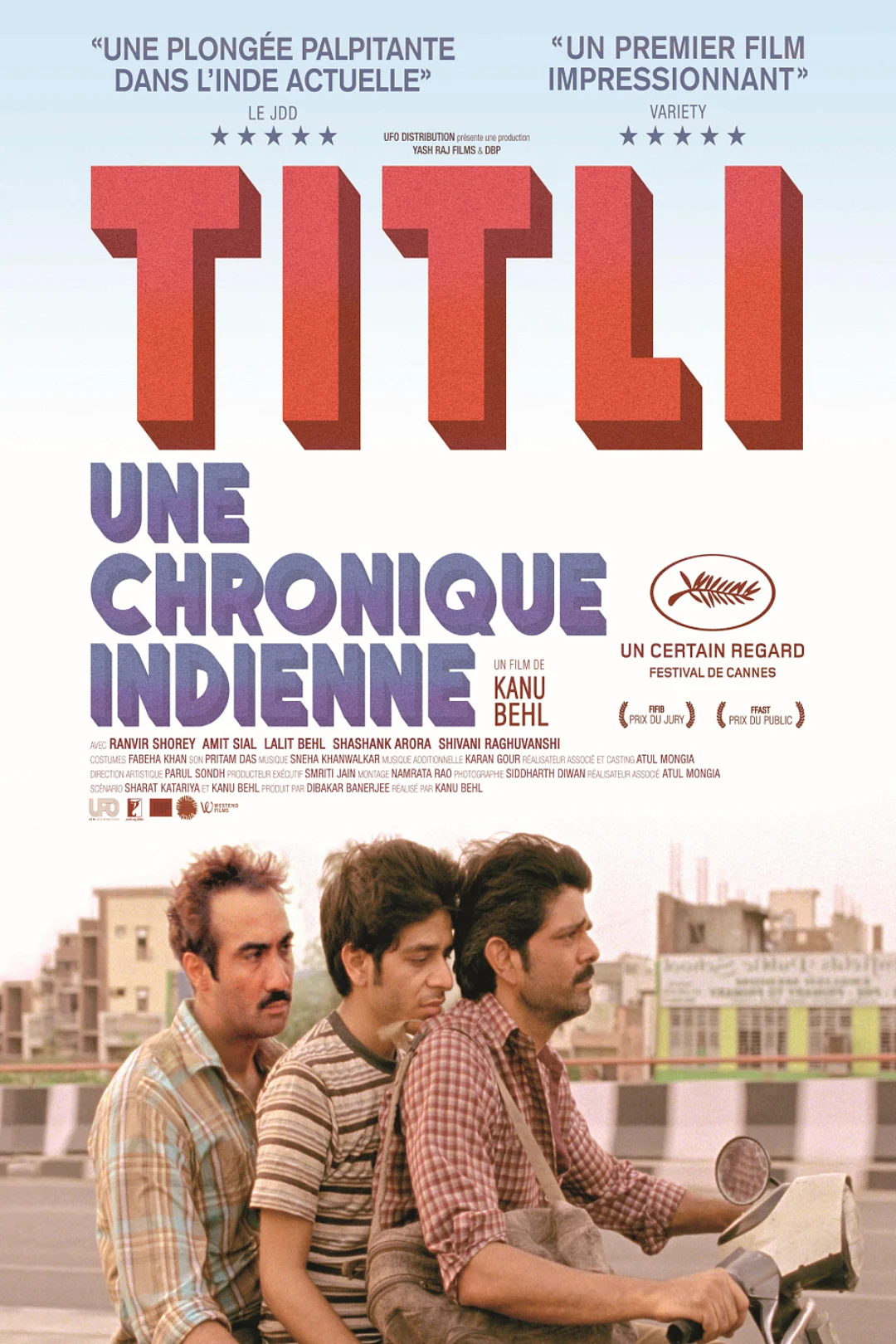
Titli presents an uncompromising portrayal of a young man, Titli (Shashank Arora), striving to break free from the violent grip of his criminal family in Delhi. As the youngest son, he is trapped in a cycle of control and fear. His forced arranged marriage to Neelu (Shivani Raghuvanshi) reveals her as an unexpected friend—someone equally desperate for escape. Together, they confront systemic abuse and the harsh realities of their environment in pursuit of autonomy. The film candidly examines the emotional scars inflicted by patriarchal violence, repression, and the pressure to conform. Titli highlights how mental health struggles are deeply connected to family dynamics and societal oppression. It is a vital work that underscores resilience and the enduring human desire to reclaim agency amid adversity.
4. Paromitar Ek Din (House of Memories) (2000), Bengali, Dir. Aparna Sen
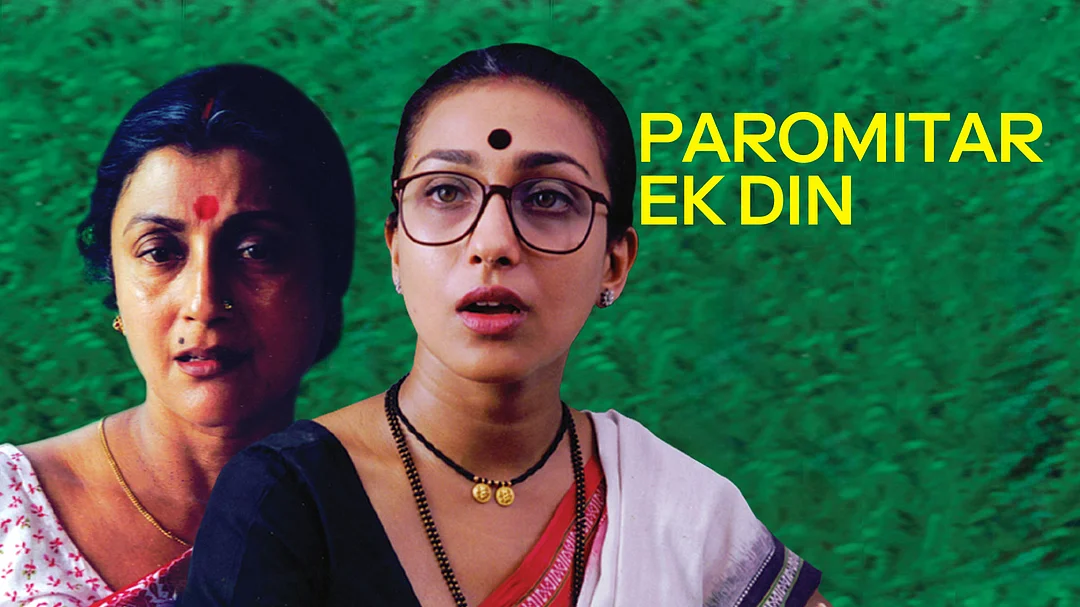
Aparna Sen’s film delicately examines the evolving relationship between Sanaka (Aparna Sen), a Bengali mother-in-law, and Paromita (Rituparna Sengupta), her progressive daughter-in-law. Set against the backdrop of bereavement and social rigidity, the film reveals the quiet endurance and emotional isolation women often carry within familial roles. Through its nuanced portrayal of caregiving, loss, and female solidarity, Paromitar Ek Din offers a profound meditation on mental health within domestic spheres. The film is a vital watch for those seeking empathetic, layered narratives that illuminate the mental landscapes shaped by gender, duty, and silence.
5. Devrai (Sacred Grove) (2004), Marathi, Dir. Sumitra Bhave & Sunil Sukthankar
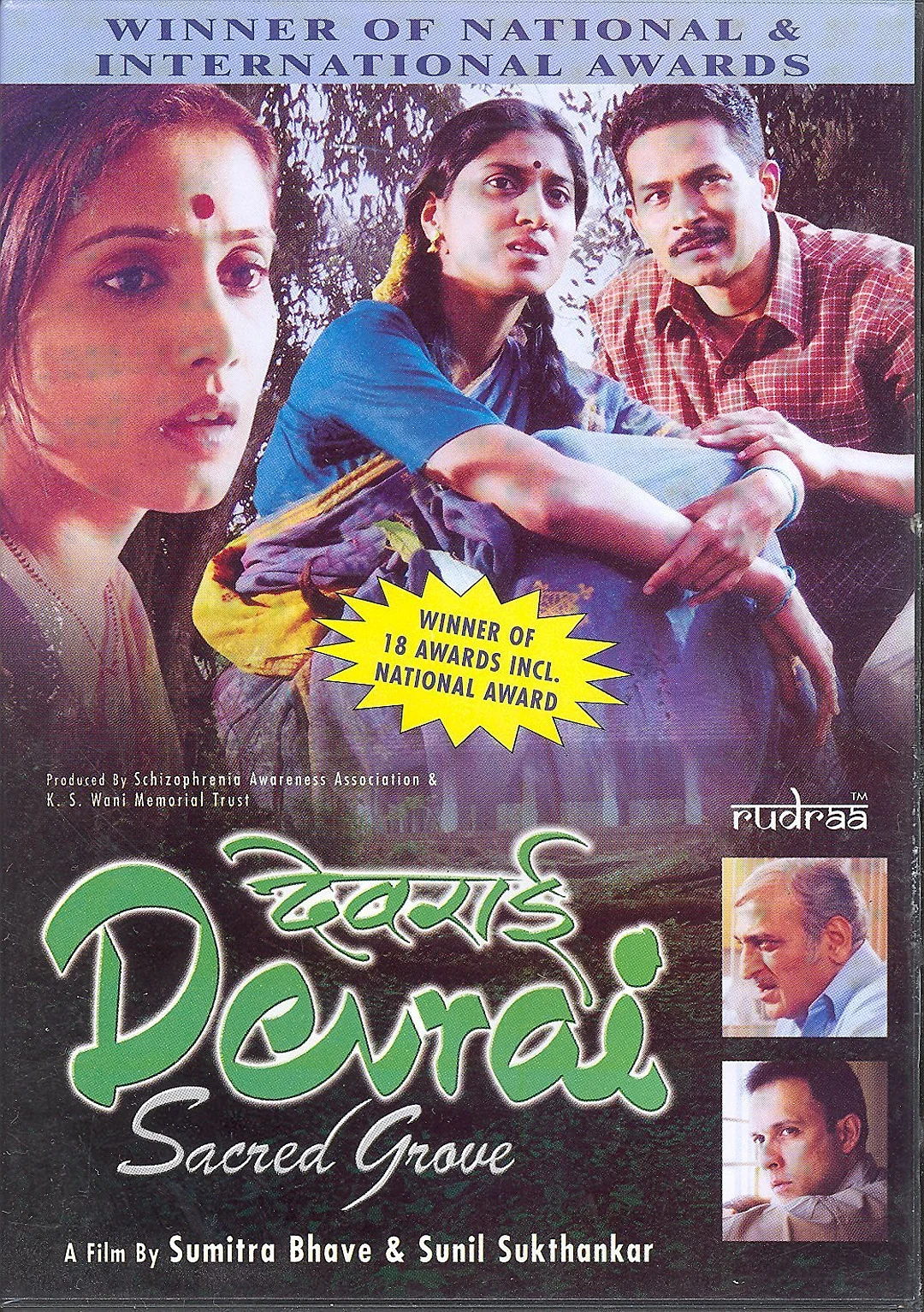
Devrai follows Sheshshayee (Atul Kulkarni), a gifted young man closely bonded with his sister Seena (Sonali Kulkarni). Deeply attuned to nature, his inner world begins to unravel as he navigates the psychological toll of his sister’s life choices and his own mounting isolation. Produced by the Schizophrenia Awareness Association, the film sensitively traces Sheshshayee’s journey into schizophrenia, marked by hallucinations and an obsessive attachment to a patch of forest he believes holds answers to his turmoil. Unflinching and empathetic, Devrai offers a rare, authentic portrayal of mental illness within an Indian familial and cultural setting.
6. North 24 Kaatham (2013), Malayalam, Dir. Anil Radhakrishnan Menon

North 24 Kaatham features Fahadh Faasil as Hari, a gifted but socially alienated software engineer living with obsessive compulsive disorder. Though intellectually sharp, Hari’s erratic behaviour and outbursts distance him from colleagues, who send him to Trivandrum for a work assignment—coinciding with a statewide hartaal. On the train, he overhears a politician worrying about his ailing wife and decides to follow him, setting off an unexpected journey through external chaos and internal reckoning. This film portrays OCD with honesty and depth, steering clear of caricature while illuminating the quiet turmoil behind compulsive behaviours. North 24 Kaatham offers a compassionate lens on disruption and chance encounters that can shift deeply ingrained patterns.
7. My Name Is Khan (2010), Hindi, Dir. Karan Johar
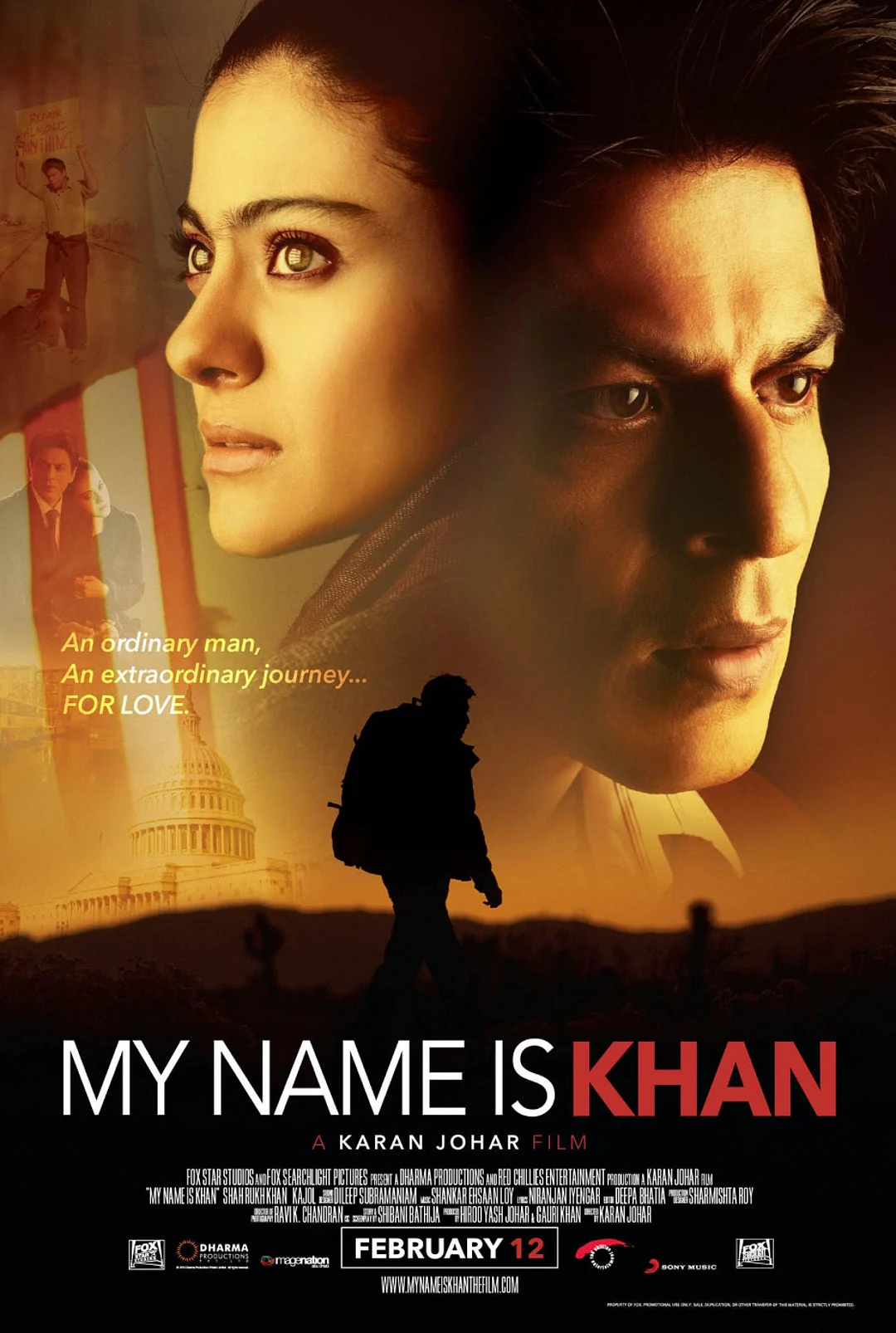
The film centres on Rizwan Khan (Shah Rukh Khan), a man on the autism spectrum whose life is upended after a tragedy drives a wedge between him and his wife Mandira (Kajol). Set against the backdrop of post-9/11 America, the film follows Rizwan as he travels across the country, encountering strangers and small acts of humanity, in a quiet but determined effort to reclaim love and challenge harmful stereotypes. Through Rizwan’s eyes, the film renders neurodivergence with depth and care, highlighting his sensory world, literal thinking, and emotional sincerity. My Name Is Khan is vital viewing for its sensitive representation of autism and its nuanced critique of xenophobia, religious profiling, and cultural bias. It invites reflection on how empathy and dignity can persist even in environments shaped by fear and injustice.
8. 15 Park Avenue (2005), English, Dir. Aparna Sen

15 Park Avenue presents Meethi (Konkona Sen Sharma), a young woman navigating schizophrenia while living with her guardian Anjali (Shabana Azmi). Meethi sustains an elaborate imaginary world featuring her ex-fiancé and five children at the titular address. As their realities intersect, the film probes what sustains our will to love amid shifting dreams, deep desires, and tangible obstacles. With compassionate direction, Meethi’s inner truths are honoured rather than dismissed, inviting viewers into her lived experience. 15 Park Avenue cultivates empathy and destigmatises mental illness by portraying schizophrenia with sensitivity and respect.
9. Kumbalangi Nights (2019), Malayalam, Dir. Madhu C. Narayanan
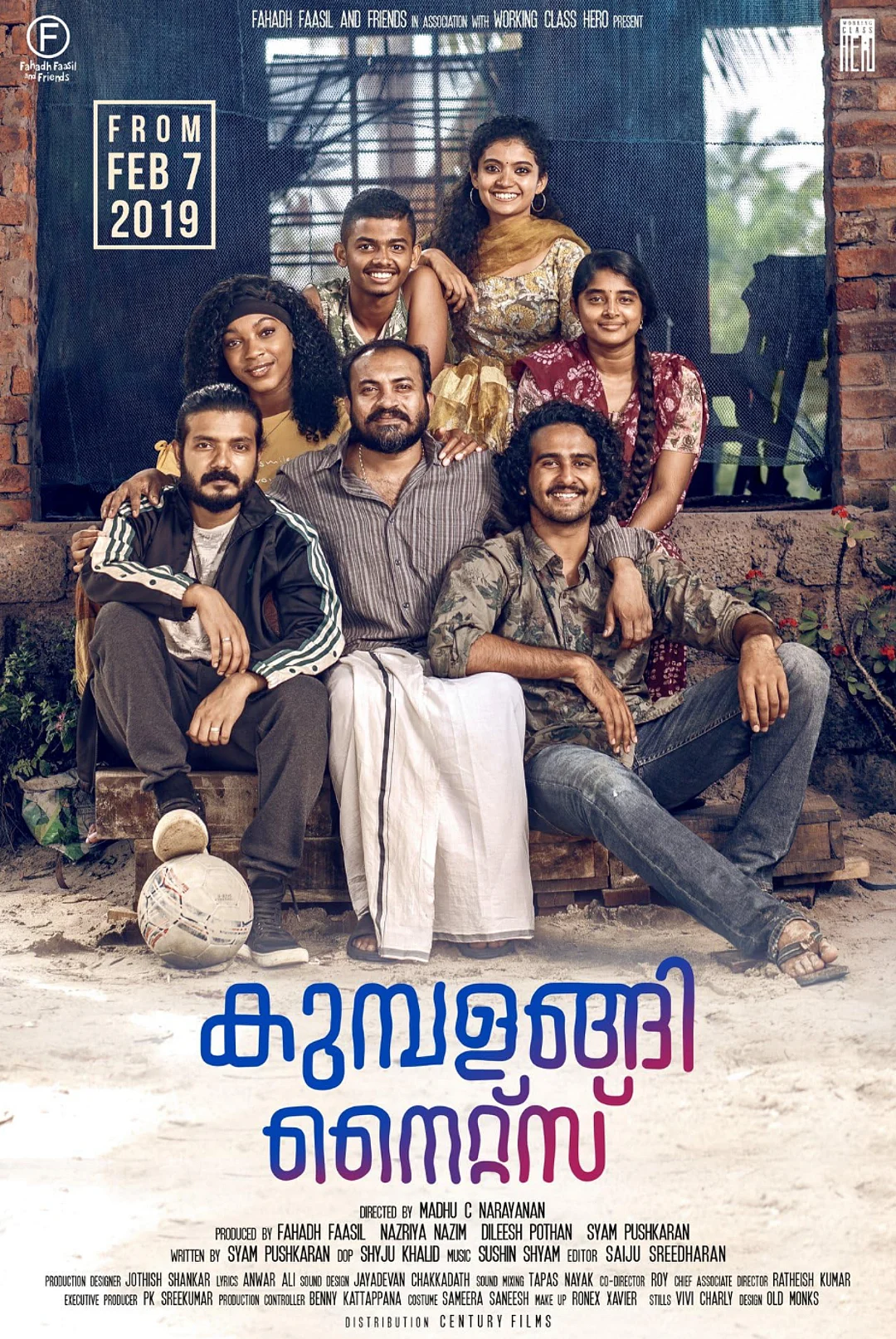
Kumbalangi Nights is a poignant exploration of masculinity, mental health, and chosen healing through the lives of four brothers: Bobby (Shane Nigam), Saji (Soubin Shahir), Bonny (Sreenath Bhasi), and Franky (Mathew Thomas) who live together in a broken home in Kumbalangi. Each carries emotional scars—Saji wrestles with anger, Bobby with insecurity, and Bonny, who is mute, offers quiet resilience. Bobby’s romance with Baby is complicated by her controlling brother-in-law Shammy (Fahadh Faasil), whose disturbing behaviour reveals deeper control issues. The film presents mental health struggles with care, portraying vulnerability as a strength rather than a flaw. Its empathetic narrative urges reflection on familial dysfunction, healing, and the importance of emotional openness. Kumbalangi Nights disarms toxic masculinity and shows emotional growth as both necessary and transformative.
10. K.D. (Karuppu Durai) (2019), Tamil, Dir. Madhumita Sundararaman
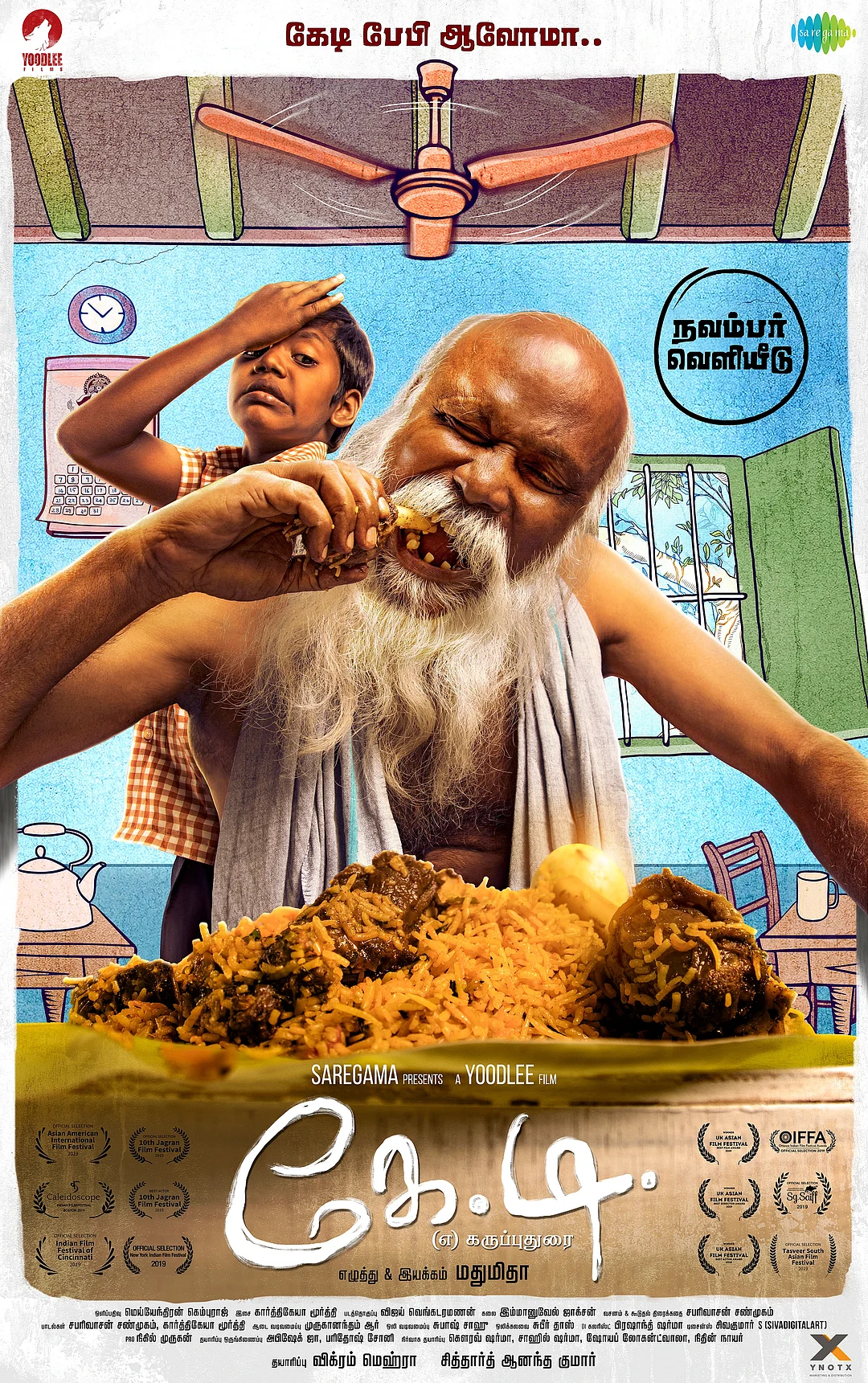
K.D. unveils the journey of Karuppu Durai (Mu Ramaswamy), an elderly man who flees his home after overhearing his family’s plan to euthanise him. On the road, he meets Kutty (Naga Vishal), a sharp-witted orphan with irreverent charm. Their bond—formed through mischief and quiet confessions—gradually becomes a lifeline for them both. Directed by Madhumita Sundararaman, K.D. is a poignant yet humorous reflection on age, abandonment, and emotional survival. It brings attention to the often-invisible mental health struggles of the elderly, especially the trauma of being treated as a burden. The film fosters empathy for those sidelined by their own families and urges viewers to rethink dignity, purpose, and companionship across generations.
11. Unishe April (19th April) (1994), Bengali, Dir. Rituparno Ghosh
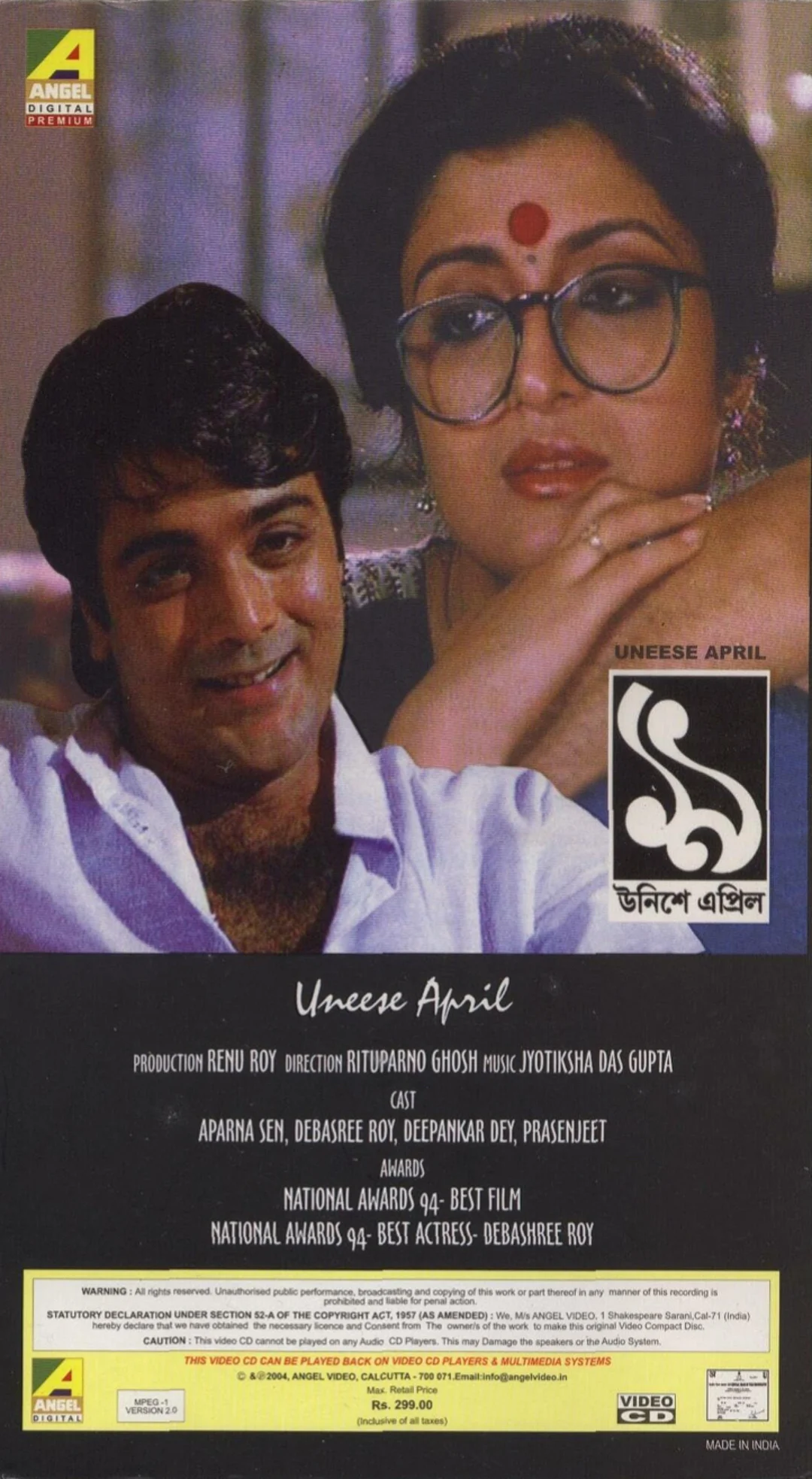
Directed by Rituparno Ghosh, the film delicately examines the strained relationship between Sarojini (Aparna Sen), a renowned classical dancer, and her daughter Aditi (Debashree Roy), who has grown up feeling unseen and abandoned. The film unfolds through introspective conversations and emotional reckonings that slowly unearth years of buried pain, misunderstanding, and unmet needs. A quiet, yet piercing exploration of maternal absence and its psychological toll, Unishe April remains a seminal work in Indian cinema. It sensitively captures how emotional neglect within families can leave lasting scars, while also suggesting the quiet hope of reconciliation. The film encourages audiences to reflect on mental health within intimate relationships, particularly the silent struggles that often go unnoticed in parent-child dynamics.
12. Thanmathra (2005), Malayalam, Dir. Blessy
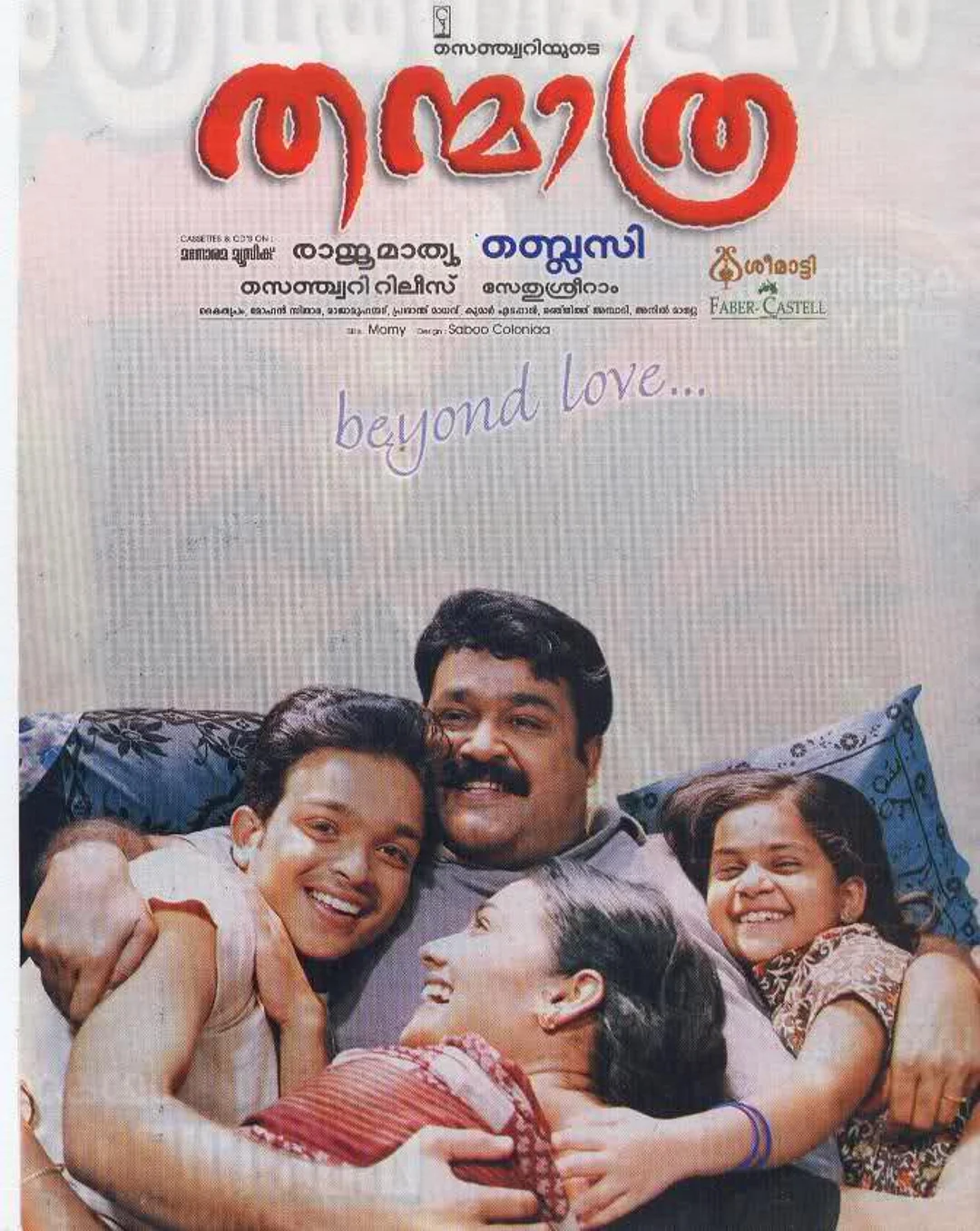
Directed by Blessy, the film intimately chronicles the journey of Ramesan (Mohanlal), a devoted husband and father confronting the relentless progression of dementia. As his cognitive abilities deteriorate, the film reveals the profound impact on his sense of self and the shifting dynamics within his family. Through nuanced storytelling, it portrays the confusion, fear, and frustration that accompany memory loss, highlighting both Ramesan’s vulnerability and his family’s struggle to adapt. This film offers a compassionate, realistic depiction of an often misunderstood condition, emphasising the emotional and psychological challenges faced by those living with dementia and their caregivers.
13. Taare Zameen Par (2007), Hindi, Dir. Amole Gupte, Aamir Khan
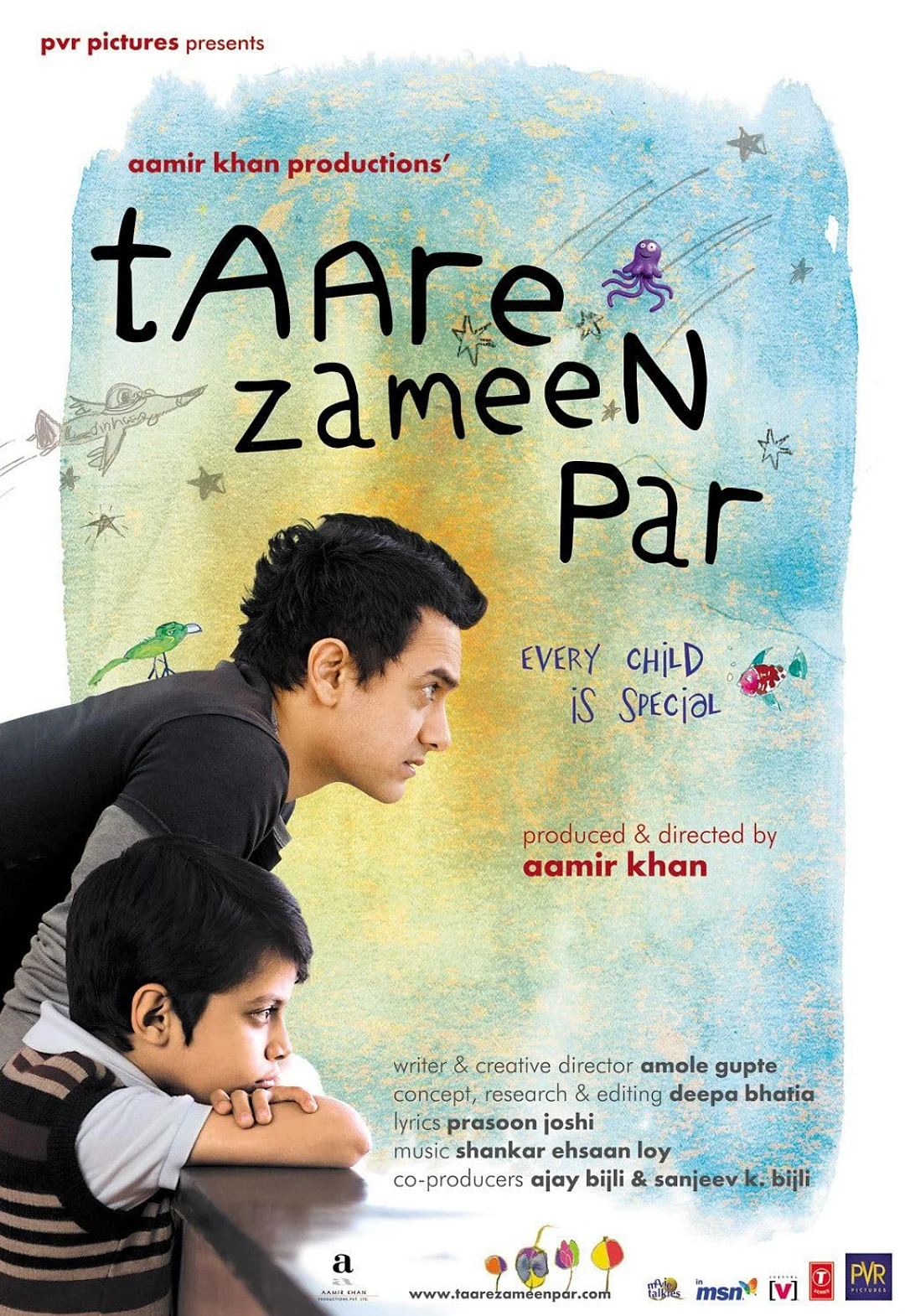
Directed by Amole Gupte and Aamir Khan, the story follows Ishaan (Darsheel Safary), a young boy with dyslexia, whose inner world remains unseen by an education system that demands conformity. His life transforms when art teacher Ram Shankar Nikumbh (Aamir Khan) recognises his creative brilliance and emotional distress. Through expressive visuals, animation, and intimate framing, the film brings to life Ishaan’s perspective, capturing his confusion, fear, and quiet resilience. Taare Zameen Par offers a compassionate and insightful portrayal of learning disabilities and their psychological impact on children. It urges educators and families to look beyond academic performance and recognise emotional well-being as central to a child’s growth.
14. Qissa (2014), Multiple Languages, Dir. Anup Singh
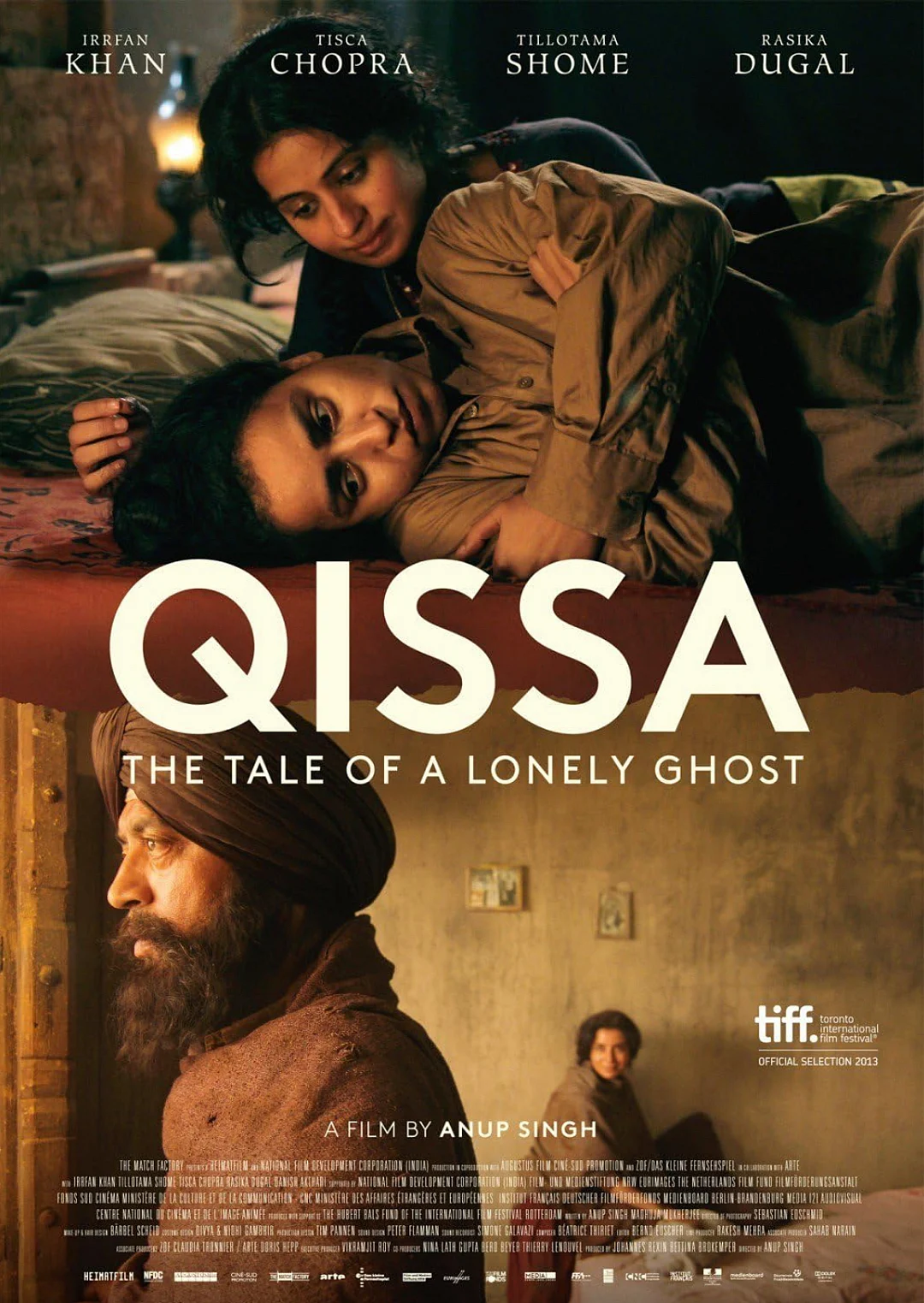
Anup Singh’s film is a deeply affecting examination of identity, generational trauma, and psychological repression. Set in the aftermath of Partition, the film follows Umber Singh (Irrfan Khan), a Sikh patriarch who—unable to accept the birth of a fourth daughter—raises Kanwar (Tillotama Shome) as a son. What begins as denial gradually becomes a haunting unravelling of both parent and child, as Kanwar’s inner conflict and suppressed identity surface with painful clarity. Through its layered portrayal of gender dysphoria, familial control, and inherited grief, Qissa highlights the psychological cost of forced identities. It sensitively explores how patriarchal and historical trauma shape mental health in ways that are both intimate and intergenerational. The film is significant for its bold and empathetic engagement with marginalised identities and the quiet devastation of emotional erasure.
15. Phobia (2016), Hindi, Dir. Pavan Kripalani
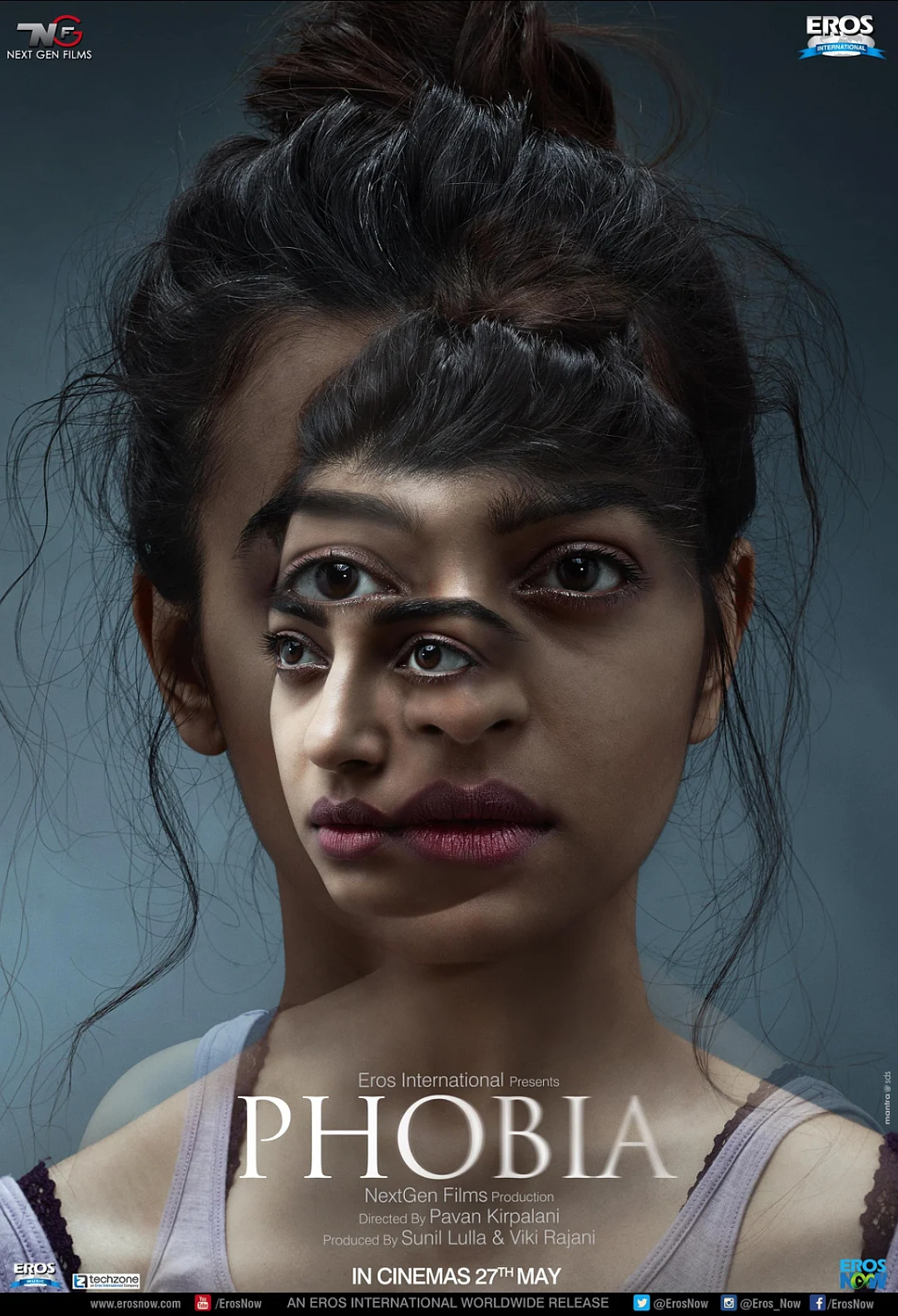
Phobia is a tense psychological drama that follows Mehak (Radhika Apte), a talented artist who develops acute agoraphobia after a traumatic assault. As she isolates herself, Mehak begins to witness unsettling visions and eerie occurrences that disturb her sense of reality. The film delves into the blurred space between psychological distress and perceived threat, offering a layered portrayal of trauma, vulnerability, and survival. Anchored by Radhika Apte’s visceral performance, Phobia thoughtfully explores the aftermath of assault and the isolating nature of post-traumatic stress. It draws attention to how fear reshapes perception, autonomy, and everyday life, especially for women navigating unresolved trauma.




